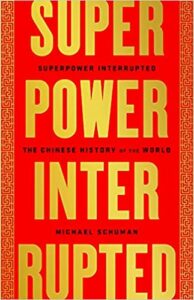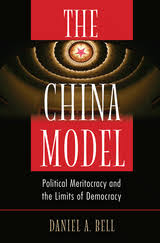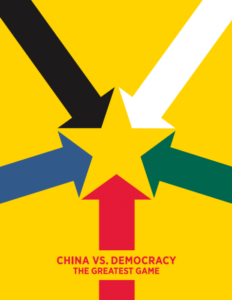The lessons for the US from China’s ‘common prosperity’ push https://t.co/pmwVc8ABft
— Democracy Digest (@demdigest) December 21, 2021
China is experiencing a slow-motion economic crisis that could undermine stability in the current regime and have serious negative consequences for the global economy. Despite the many warning signs, Western analysts and policy makers are optimistic that Xi Jinping is up to the task of managing the crisis. Such optimism is misplaced, notes Thomas J. Duesterberg, a senior fellow at the Hudson Institute.
Moreover, up to 80% of household wealth in China is in real estate holdings, a hedge against weakness of the social safety net, he writes for The Wall Street Journal. In other words, an economic meltdown is a potential threat to the implicit social compact in China between authoritarian rulers and a quiescent population.
Common Prosperity?
The slogan “common prosperity” might be just the sort of hook Xi is seeking to promote the China model, notes one observer. After all, who doesn’t like the thought of a just economic policy that spreads riches to the little guy? Michael Schuman writes for The Atlantic:
It allows Xi to more sharply distinguish China’s “socialism with Chinese characteristics” from American-style freewheeling capitalism, helping him to promote China’s development model as a superior form of economic management for the rest of the world. Neil Thomas and Michael Hirson, analysts at the consulting firm Eurasia Group, commented in a recent report that “common prosperity could occupy a key position in Beijing’s public diplomacy and in its competition with the West for ideological influence in global governance and international affairs.”
 There are some worrying signs, though, adds Schuman, a nonresident senior fellow at the Atlantic Council’s Global China Hub, and the author of Superpower Interrupted: The Chinese History of the World and The Miracle: The Epic Story of Asia’s Quest for Wealth. While acknowledging the importance of private enterprise, Xi stressed “giving full play to the important role of the public sector economy in driving common prosperity,” which could mean that the least productive and innovative state agencies and companies will take the lead. RTWT
There are some worrying signs, though, adds Schuman, a nonresident senior fellow at the Atlantic Council’s Global China Hub, and the author of Superpower Interrupted: The Chinese History of the World and The Miracle: The Epic Story of Asia’s Quest for Wealth. While acknowledging the importance of private enterprise, Xi stressed “giving full play to the important role of the public sector economy in driving common prosperity,” which could mean that the least productive and innovative state agencies and companies will take the lead. RTWT
But Xi’s regime faces daunting challenges, Hudson’s Duesterberg writes in a new study, “Economic Cracks in the Great Wall of China: Is China’s Current Economic Model Sustainable?”:
- It seeks to manage a long-term shift or rebalancing that will possibly trigger a financial crisis but almost certainly result in much slower economic growth.
- An acute crisis for overleveraged banks and local governments, all dependent on a fragile real estate market and access to external markets and capital, would also be a blow to household wealth.
- The accumulation of pension and health care weakness, environmental degradation, and social and regional inequality represents volatile political tinder that could turn into widespread popular discontent, especially given the relatively poor government performance and almost total lack of democratic accountability.
 China is not a well-governed, democratic polity as were Japan and the US at the times of their bubble crises, he adds. If policy tools to address a crisis failed or were perceived to fail in the two democracies, the people had recourse and could register disapproval and change governments. China has no such functioning safety valve to satisfy legitimate grievances and a crisis could lead to popular discontent and political instability.
China is not a well-governed, democratic polity as were Japan and the US at the times of their bubble crises, he adds. If policy tools to address a crisis failed or were perceived to fail in the two democracies, the people had recourse and could register disapproval and change governments. China has no such functioning safety valve to satisfy legitimate grievances and a crisis could lead to popular discontent and political instability.
It may be that reining in political and business elites is the biggest future challenge for both the US and China, notes analyst Rana Foroohar. Of course, liberal democracies have more transparent court systems and a free press to help ensure that they do, she writes for The Financial Times (above):
Politicians remain accountable to the electorate, however polarized it might be. China, meanwhile, has cleared the way for President Xi Jinping, whom many see as the next Mao, to become a leader for life. Beijing’s “common prosperity” effort has its merits. But it can’t obscure the fact that in China, the Communist party itself remains the biggest market risk.
History has shown that the most authoritarian forms of government prove ultimately to be the most fragile. China’s remarkable rise as the world’s first capitalist-communist experiment is running up against a series of setbacks, mostly self-inflicted, adds Frederick Kempe, the President and Chief Executive Officer of the Atlantic Council.
President Xi Jinping is doubling down on domestic repression and reinforcing Communist Party control over China’s most successful companies, particularly in the technology space. In so doing, he is choking them off from international financial markets – and he may be killing the panda that laid China’s economic miracle.
 Given the profound challenges China faces, Xi is not focused on being the second Mao, the architect of the Great Leap Forward, or the second Deng, the great reformer, adds Therese Shaheen, CEO of US Asia International and former chair of the State Department’s Taiwan-based American Institute.
Given the profound challenges China faces, Xi is not focused on being the second Mao, the architect of the Great Leap Forward, or the second Deng, the great reformer, adds Therese Shaheen, CEO of US Asia International and former chair of the State Department’s Taiwan-based American Institute.
What Xi is desperate to avoid is being a second Gorbachev, who rose to the top in the Soviet Union at a time when the inconsistences and system fractures in the USSR were irreversible, even though much of the world didn’t realize it. Gorbachev’s attempts to embrace half-hearted reforms and win the acclaim of the West only accelerated the Soviet Union’s demise. Xi will not follow that pattern, she writes for National Review.
Any systemic crisis in China will not necessarily have benign consequences, Duesterberg warns:
Given Chinese nationalist rhetoric and revanchist ambitions toward Taiwan, political instability could in turn motivate risky military activities that escalate into confrontations with democratic, market-oriented countries. From the perspective of the United States, a slowdown could exacerbate the already serious trade and economic tensions, especially if nationalist forces in China sought to cast the US as the scapegoat for its internal problems.
On the 30th anniversary of the Tiananmen massacre, key policy makers, activists, and experts convened at the National Endowment for Democracy (NED – below) to discuss how to challenge the spread of the China’s model within and beyond its borders.







